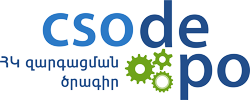Engaging Conflict ամառային դպրոց (անգլերեն)
Source and application can be found here.
The Engaging Conflict Summer School is designed to equip committed students, early-career researchers and professionals with advanced tools to critically understand conflict and tackle it as a dynamic reality. Engaging Conflict’s faculty draws from a unique spectrum of expertise to train a select group of participants in assessing the complexity of conflict and post-conflict scenarios, and evaluating the relevance and impact of different policy choices or normative standings, from non-intervention to conflict prevention.
Summer schools on conflict and conflict-related issues are mostly concentrated in Northern Europe, while in Italy courses on such topics are meant mainly as professionalizing tools aimed at non-academic audiences. Torino has a long-standing tradition of conflict-related studies, both in its University and in its military institutions, and for this reason has stepped up to fill up this void.
The Engaging Conflict Summer School addresses three core questions:
1 – What is conflict? Conceptualizing and understanding conflict
- Conflict as a concept; conflict as discourse;
- What differentiates conflicts of different kinds, what are their constitutive components (actors, dynamics, duration, etc.)?
- When, where and why do such different kinds of conflict occur? What implications are attached to different kinds of conflict?
- Who fights and why? What actors are involved in conflict and how?
2 – How does conflict work? Causes and dynamics of conflict
- Causes: the politics of identity, the role of religion, territory, mobilization mechanisms;
- Tools: violence and its forms.
- Sustainability: the economy of conflict;
- Broader issues: ethnicity; gender; regional aspects; environmental issues.
3 – How can we influence conflict? Intervening on conflict, and possible outcomes
- Conflict prevention (vs. the implications of “give war a chance”), early warning and monitoring;
- Mediation, negotiation and third-party involvement;
- Disarmament, demobilization, reintegration (DDR); reconciliation; reconstruction;
- Peacebuilding and its implications; conflict and development nexus.
The program is structured around two intensive weeks. Engaging Conflict activities are not limited to lectures, as workshops, seminars and roleplays complete the schedule. In addition, specifically designed thematic conversations will offer participants the opportunity to interact with scholars and practitioners alike in an informal environment. The School runs 5 days a week and the daily schedule is from 9 am to 1 pm (morning session) and from 2.30 to 4.15 pm (afternoon session).
Classes are limited to 25 participants, English proficiency is required, and international applications are welcome. Ideal candidates have a basic understanding of conflict-related issues. Several scholarships are available, covering anything from tuition fees to accommodation and meals. Please do check whether you may be eligible for one of them.
The venue of the course is: Dipartimento di Culture, Politica e Società (Department of Cultures, Politics and Society), Campus Luigi Einaudi (CLE), Lungodora Siena 100/a, Torino, Italy.
Engaging Conflict is organized by T.wai in cooperation with the Department of Cultures, Politics and Society, University of Turin, and in particular with the MA programme in Scienze Internazionali.
